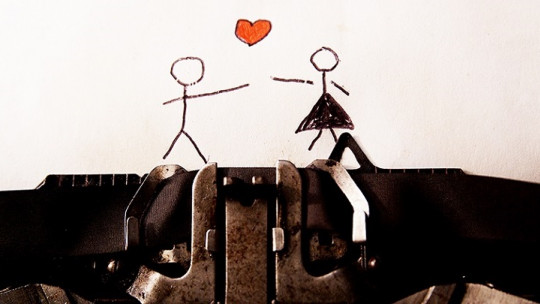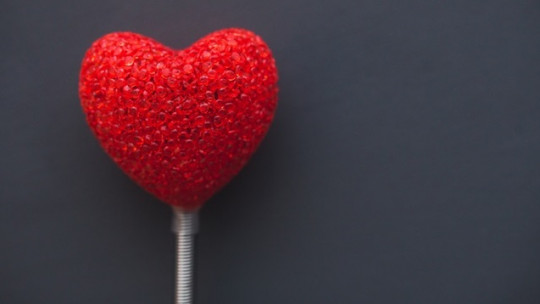
When you love someone but that person doesn’t love you back, what do you do? It may be someone with whom you had a very intimate relationship in the past, it may simply be a crush, a platonic love…
Be that as it may, the fact that affection and love are not reciprocated hurts a lot, too much. We cannot insist or hope that he will love us because, sadly, most likely it will not happen.
As mature, adult and rational people we must try to turn the page, we must accept that he does not love us and below we are going to see some steps to overcome it.
Realizing that someone you care about doesn’t love you in return can be incredibly painful. It challenges your self-worth, disrupts your emotional equilibrium, and often leaves you grappling with feelings of rejection and confusion. While the path to acceptance may seem daunting, it is possible to navigate these emotions constructively. This article will guide you through understanding the situation, processing your feelings, and moving forward in a healthy way.
How to accept that he doesn’t love you
There may come a time in life when, after a long and intense relationship, it breaks up. At first it is difficult, it is even difficult to assume that you are nothing anymore, but it is a fact: there is no longer a couple. Other times it happens that you have never been anything, but you are in love with someone you consider special, even though he or she does not think the same about you. And it seems that it will continue to be that way, so what are we going to do about it?
Whether it’s your ex, a person you’re in love with, or even a friend you’ve lost a relationship with, the time has come to accept that they don’t love you. The reciprocity you long for simply does not exist, there is no “feeling”. You may idolize that person but for them you are not that important, or they simply no longer care about you. You are wasting your time and energy by continuing to love her and saying goodbye is the most advisable thing for your well-being.
Accepting that someone you appreciate doesn’t love you is difficult to accept. While rationally we may know what we should do, theory always sounds easier than practice actually is. It will take effort, reflection and maybe even tears to accept the fact that someone important to us no longer loves us or has never loved us, but it can be achieved. Let’s look at a few tips as a guide:
1. Understand the situation
The first step to accepting that he doesn’t love you is to understand what situation we are in. We may have just broken up with our partner, a person we are in love with has rejected us, or a friend has stopped talking to us for any reason…
Whatever the situation, it is very important to understand everything that has happened, relate the causes to their consequences and understand to what extent the situation depends on us either of the two or it has been a cluster of coincidences that have made us feel something that is not reciprocated by the other.
The idea of all this is to understand that there are things that do not depend on us and others that, although they do, can turn out badly for us. You don’t always get what you want and, in matters of love, this is a fairly common rule. At least, we will be able to accept rejection a little better by understanding everything in our power.
2. You can’t control the feelings of others
We must always understand that we cannot control the feelings of others or command another person’s heart. We cannot force anyone to love us, nor force them to continue loving us once the flame of love or friendship has gone out. Sentimental rejection is painful, but more painful is insisting that something is magically going to change because we want to.
3. Put distance
On many occasions, the best way to speed up the process of accepting that someone doesn’t love us is to simply get out of the way. The distance will help us forget it and, consequently, will reduce our desire to make the other person continue to love us.
Out of sight, out of mind. If we stop meeting that ex-boyfriend or ex-friend, we ask the friends we have in common not to invite us if one of us is there or, directly, we move away from where he lives for a while, we can get the intense feelings that we feel towards him or her will weaken.
And we are not only talking about physical distance, but also social distance. A good idea to reduce what we feel towards that person and make what we already know, which is that they do not love us, become clearer and stronger in our mind is to avoid any stimulus coming from them and for this there is no better technique than that of zero contact: eliminate her from social networks and avoid having any of her objects at home

4. Don’t blame anyone
It often happens that we experience being rejected as a kind of attack, especially if they make us understand that it is because we are not worth enough or because they do not like us. This can affect us at the level of self-esteem and self-concept, making us wonder if it is because we are not handsome, intelligent, smart, special…
Everyone has their own tastes, but we must also keep in mind that rejecting someone does not mean that it is done because they do not like it, but it also means that Several factors may be involved, such as fear of a relationship, being already committed to another person or, simply, because there is nothing that makes you want to maintain any type of relationship with us.
Nobody owes us anything. We cannot blame anyone that he rejected us, nor can we blame ourselves that we are not worth it. Each one has its pros and cons, and even then they are not a sufficient guarantee that we will be able to have a relationship with a person who, supposedly, we might like. Sometimes even the most perfect person does not become a special person.
5. Surround yourself with loved ones
We have lost a friend or a partner or, directly, someone who we thought would love us has rejected us. We have to fill that gap that has been left for us and the best thing to do is stay with those who do love us
In the same way that we must accept that that special person does not love us, we must try to see that there are already special people in our environment who also love us.
Added to this, our friends, family or other loved ones can serve as very good distractions, putting the focus of attention on the good moments that we will be living with them and leaving aside those that could not be or that already happened with someone we did not like. wants.
6. Don’t expect an apology
We may expect an apology after our partner has broken up with us or a friend has left us behind. We want answers, a minimal explanation of why: “Is there another person?” “He cheetead on me?” “I made a mistake?” “Do I seem boring to you?”
The reason behind being rejected can be very diverse and we may never know Yes, it is true that sometimes he tells us, which is appreciated because in this way it helps us get through the grieving phase better, but other times we are not so lucky and it leaves us thinking and wondering what could have happened, which It wears us out mentally.
It is not healthy to always expect an apology or an explanation In fact, it is possible that the other party also expects it because they consider us responsible for the fact that this has gone wrong, that it has not worked, although we ourselves do not know exactly why. Each person may have a very different view of what the relationship was like, so it is quite likely that you both consider yourself “the victim.”
7. Allow yourself to feel bad
It is normal that, when we see that a person we love but who does not correspond to us, we feel sad. We have the right to feel this way, in fact, we should allow ourselves to be sad.
It is good that we feel those emotions and take our time to reflect on what has happened, a reflection that will help us accept that he does not love us. Realizing that we are suffering for him or her will help us understand firsthand the sad reality that he or she does not love us.
8. Take care of yourself
While we try to accept once and for all that he doesn’t love us, we must not neglect our physical and mental health. The healthiest thing we can do right now is to work on the relationship with the most important person in our life: ourselves. Therefore, we must focus on cultivating good self-love and respect for ourselves.
The only way to have a good relationship with others is to have a good relationship with ourselves, satisfying our needs and fulfilling our dreams. We must maintain our hobbies, watch our diet, exercise and continue meeting friends and family. We must maintain meaningful activities to be able to distract ourselves and be happy.
Understanding the Reality
Acknowledging the Facts
The first step in accepting that he doesn’t love you is to confront the reality of the situation. Denial or wishful thinking can prolong your suffering and make it harder to move on.
- Acceptance Over Denial: It’s important to acknowledge the truth of the situation rather than holding onto false hope. This involves recognizing the signs and understanding that love cannot be forced.
- Clarity: Understand why the relationship did not develop as you hoped. Was it due to differences in values, goals, or personal circumstances?
Processing Your Emotions
Allowing Yourself to Grieve
Grieving the end of a potential relationship is crucial for emotional healing. Allow yourself to feel the full range of emotions, from sadness to anger.
- Feeling Your Feelings: Don’t suppress your emotions. Let yourself cry, be angry, or feel frustrated. This is a natural part of the healing process.
- Journaling: Writing down your thoughts and feelings can help you process them and gain clarity.
Seeking Support
Don’t go through this alone. Reach out to friends, family, or a counselor for support.
- Talking It Out: Share your feelings with people who care about you. They can provide comfort, perspective, and advice.
- Professional Help: A therapist or counselor can help you work through your emotions and develop coping strategies.
Reflecting on the Relationship
Evaluating Your Expectations
Consider whether your expectations of the relationship were realistic. Sometimes, our idealized version of a relationship doesn’t match reality.
- Realistic Expectations: Assess whether you had unrealistic expectations about the relationship or the person.
- Personal Growth: Reflect on what you’ve learned about yourself through this experience. What are your needs and desires in a relationship?
Learning from the Experience
Every experience, even painful ones, can offer valuable lessons.
- Self-Reflection: Think about what you want in future relationships and how you can apply what you’ve learned.
- Personal Development: Use this time to focus on personal growth and self-improvement.
Moving Forward
Embracing Self-Care
Prioritize your well-being as you navigate through this challenging time.
- Self-Love: Engage in activities that make you feel good about yourself and boost your self-esteem.
- Healthy Habits: Maintain a routine that includes exercise, proper nutrition, and adequate sleep to support your emotional health.
Setting New Goals
Shift your focus towards positive changes and new goals.
- Personal Goals: Set goals for personal development, hobbies, or career advancements. This can help shift your focus away from the past relationship.
- New Opportunities: Open yourself up to new experiences and possibilities. Meeting new people and exploring new interests can be therapeutic.
Understanding Your Worth
Reaffirming Your Self-Esteem
Recognize that your value is not determined by someone else’s feelings towards you.
- Self-Validation: Remind yourself of your strengths and qualities. Your worth is intrinsic and not dependent on external validation.
- Positive Affirmations: Use positive affirmations to reinforce your self-esteem and confidence.
Avoiding Negative Self-Talk
Be mindful of negative self-talk and avoid blaming yourself for the situation.
- Positive Inner Dialogue: Replace negative thoughts with positive and affirming ones. Focus on what you can control and improve.
- Forgiveness: Forgive yourself for any perceived shortcomings or mistakes. Everyone has areas for growth.
Building a Support Network
Strengthening Relationships
Rebuild and strengthen connections with supportive friends and family.
- Quality Time: Spend quality time with loved ones who uplift and support you.
- Mutual Support: Offer support to others in your network. Helping others can provide a sense of fulfillment and strengthen your relationships.
Exploring New Social Circles
Expand your social circles to meet new people and form new connections.
- Social Activities: Engage in social activities or join groups related to your interests. This can help you meet people who share your passions.
- Volunteering: Volunteering can provide a sense of purpose and introduce you to people with similar values.
Embracing the Future
Focusing on Personal Growth
Use this experience as an opportunity for personal growth and development.
- Learning Opportunities: Take courses or pursue interests that contribute to your personal and professional growth.
- Self-Improvement: Set personal development goals that align with your values and aspirations.
Staying Open to New Relationships
While healing, keep an open heart and mind towards new relationships.
- Openness: Stay open to meeting new people and forming new connections. Being open to new experiences can lead to fulfilling relationships in the future.
- Healthy Boundaries: Establish healthy boundaries in future relationships to ensure they align with your needs and values.
Accepting that he doesn’t love you can be a painful yet transformative process. By confronting the reality, processing your emotions, and focusing on personal growth, you can navigate this challenging time with resilience. Embrace self-care, seek support, and remain open to new opportunities. Remember, your worth is not defined by someone else’s feelings, and with time, you will heal and grow stronger.
FAQs
How can I stop thinking about him?
Try engaging in activities that keep you occupied and distract you from dwelling on the past. Surround yourself with supportive friends and focus on personal growth.
What if I feel like I can’t move on?
It’s normal to feel stuck at times. Seek support from a therapist or counselor who can help you work through your emotions and develop coping strategies.
How can I rebuild my self-esteem after rejection?
Focus on self-care, set personal goals, and practice positive self-talk. Reaffirm your strengths and worth, and avoid negative self-judgment.
Is it okay to remain friends with someone who doesn’t love me?
It depends on your emotional readiness and whether the friendship supports your well-being. If staying friends is too painful, it may be healthier to create distance.
How do I know when I’m ready for a new relationship?
You’re ready when you feel healed from past experiences, have a clear understanding of your needs, and are open to new possibilities without baggage from previous relationships.








